Blog
Employment Lawyer Myths: Top 10 Workplace Misconceptions
July 17, 2025 Leslie Smith
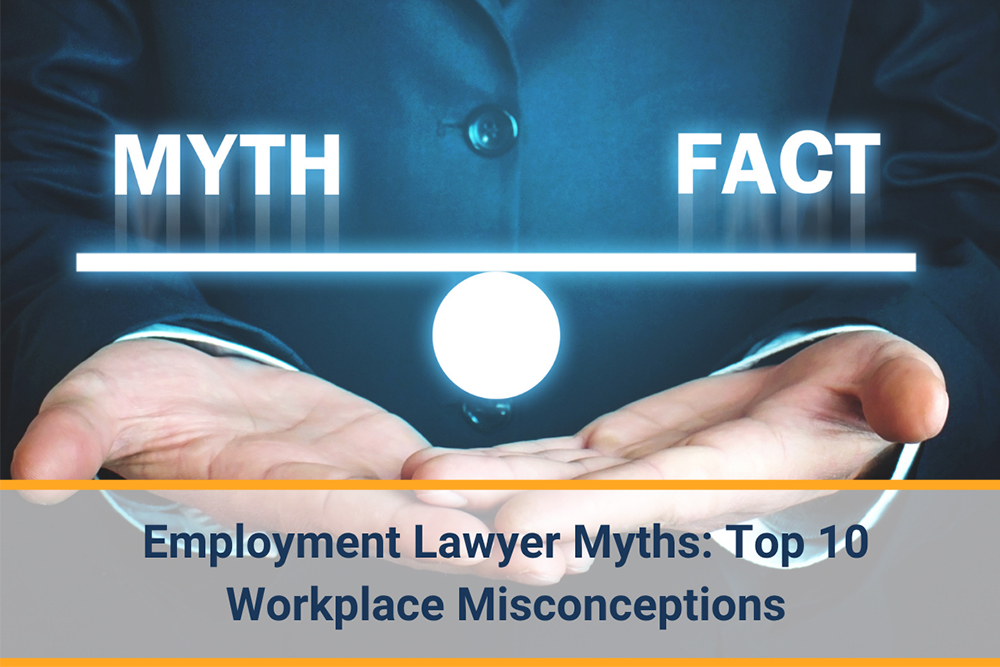
What Every Employment Lawyer Knows About "At-Will Employment"
Perhaps the most damaging myth stems from American media influence.
Unlike the United States, Canada does not recognize "at-will employment." As an employment lawyer, I frequently explain that Canadian employers cannot terminate employees without notice or cause. Instead, employers must provide reasonable notice or pay in lieu of notice when terminating without just cause. The only exception involves terminations for just cause, which requires meeting an extremely high legal threshold.
Employment Lawyer Insight: Verbal Agreements Matter
Many people assume only written contracts matter in employment relationships.
However, as an employment lawyer, I regularly enforce verbal promises and agreements. Canadian courts recognize that employment relationships often involve oral commitments regarding salary increases, job security assurances, promotion promises, and working condition modifications. These verbal agreements can create legally binding obligations, especially when employees rely on them to their detriment. Therefore, both employers and employees should take verbal commitments seriously.
The Employment Lawyer's Truth About Severance Calculations
The "one week per year" rule represents only the statutory minimum under provincial employment standards legislation.
As an employment lawyer, I consistently secure significantly higher severance packages based on common law entitlements. Factors influencing severance calculations include employee age, length of service, position level, and availability of similar employment. Common law severance often ranges from 3–4 weeks per year of service, sometimes more for senior employees. This significant difference explains why professional legal review is crucial before accepting any severance offer.
Employment Lawyer Reality: Probationary Employee Rights
Many employers believe probationary employees can be dismissed without consequences.
However, employment law protects all workers from day one. While statutory notice requirements may be minimal for short-service employees, human rights protections apply immediately. Additionally, without explicit probationary clauses in employment contracts, common law notice requirements may apply even to new employees. This misconception often leads to costly legal disputes.
What Employment Lawyers Know About Independent Contractors
The label "independent contractor" doesn't automatically determine legal status.
Courts examine the actual working relationship, considering factors such as control over work methods, ownership of tools, opportunity for profit, and integration into business operations. Many workers classified as "contractors" are actually employees or dependent contractors entitled to full employment protections. This misclassification can result in significant liability for employers.
Employment Lawyer Warning: Unilateral Contract Changes
Significant changes to employment conditions without proper notice can constitute constructive dismissal.
Unilateral changes to compensation, job duties, work location, or hours can entitle employees to treat their employment as terminated and claim severance. Employers must obtain employee consent or provide reasonable notice before implementing substantial changes to employment terms.
The Employment Lawyer's Guide to Valid Resignations
Employment law recognizes various forms of resignation beyond formal written notice.
Clear verbal resignations can be binding. However, heat-of-the-moment resignations may not be enforceable if promptly retracted. Context matters significantly in determining resignation validity. Employers should seek confirmation of resignation intent rather than immediately accepting emotional statements.
Employment Lawyer Facts About Overtime Entitlements
Employment standards legislation generally applies overtime provisions to most employees, regardless of payment structure.
Salaried employees typically qualify for overtime unless they fall into specific exempt categories. Simply labeling someone as "management" or paying a salary doesn't automatically exempt them from overtime entitlements. The actual job duties and responsibilities determine exemption status.
What Employment Lawyers Understand About Discrimination
Human rights legislation protects against both direct and indirect discrimination.
Seemingly neutral policies that disproportionately impact protected groups can violate employment law, even without discriminatory intent. Employers have a duty to accommodate protected characteristics to the point of undue hardship. This obligation extends beyond obvious discrimination to include systemic barriers.
Employment Lawyer Truth: Contract vs. Common Law
While written contracts are important, they don't automatically supersede common law principles.
For contract provisions to be enforceable, they must be clear, comply with minimum standards, and provide valid consideration. Courts regularly strike down termination clauses that attempt to provide less than statutory minimums or are otherwise unconscionable. This reality often surprises both employers and employees.
Why These Employment Lawyer Insights Matter
Understanding these realities helps both employers and employees make informed decisions.
For employers, it means implementing compliant policies and practices. For employees, it means recognizing when to seek professional advice. These myths persist because employment law is complex and constantly evolving. Recent legislative changes, court decisions, and regulatory updates regularly reshape workplace rights and obligations.
At Leslie J. Smith Law, we provide comprehensive employment law guidance based on current legislation and case law. Whether you're an employee questioning your rights or an employer seeking compliance advice, professional consultation ensures decisions are based on legal reality, not dangerous myths.
Contact us at 905-257-7714 or get in touch for expert employment law advice tailored to your specific situation. Don't let misconceptions cost you money or expose you to unnecessary legal risks.
Archive
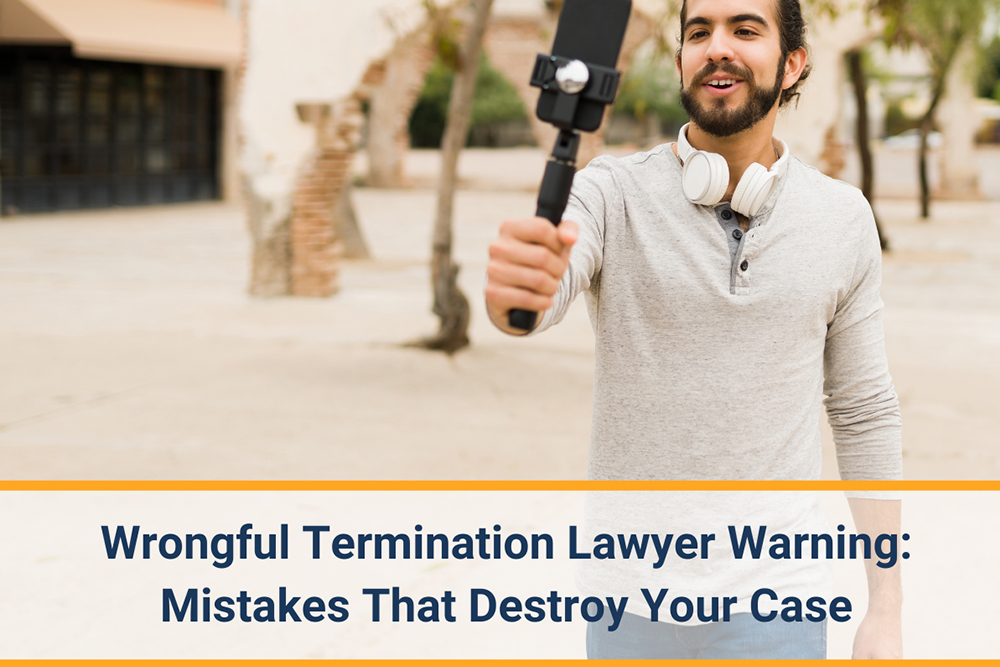
January 22, 2026 | Leslie Smith
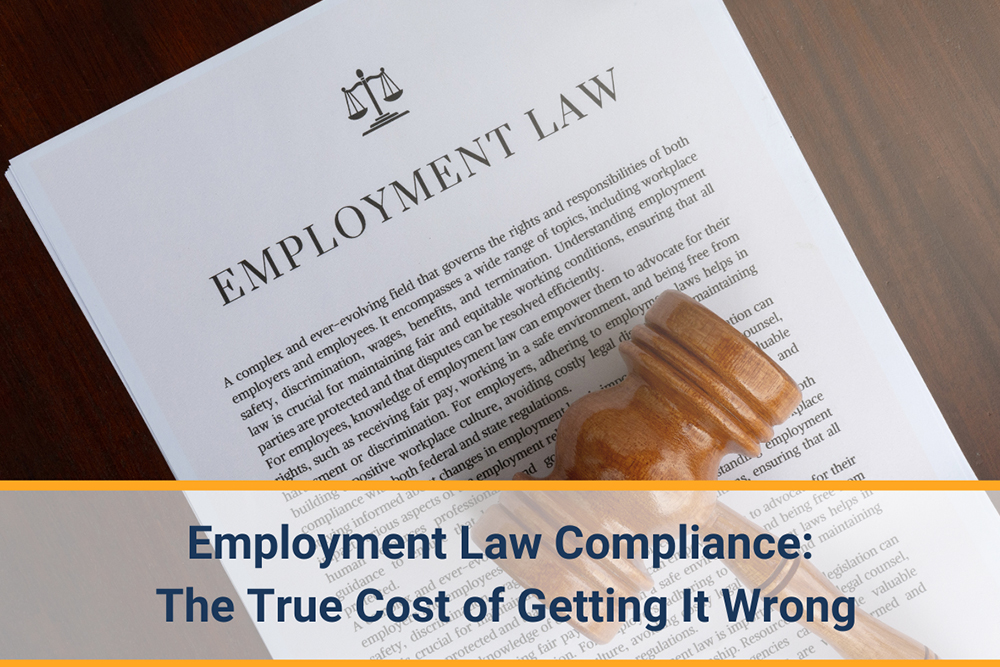
December 5, 2025 | Leslie Smith
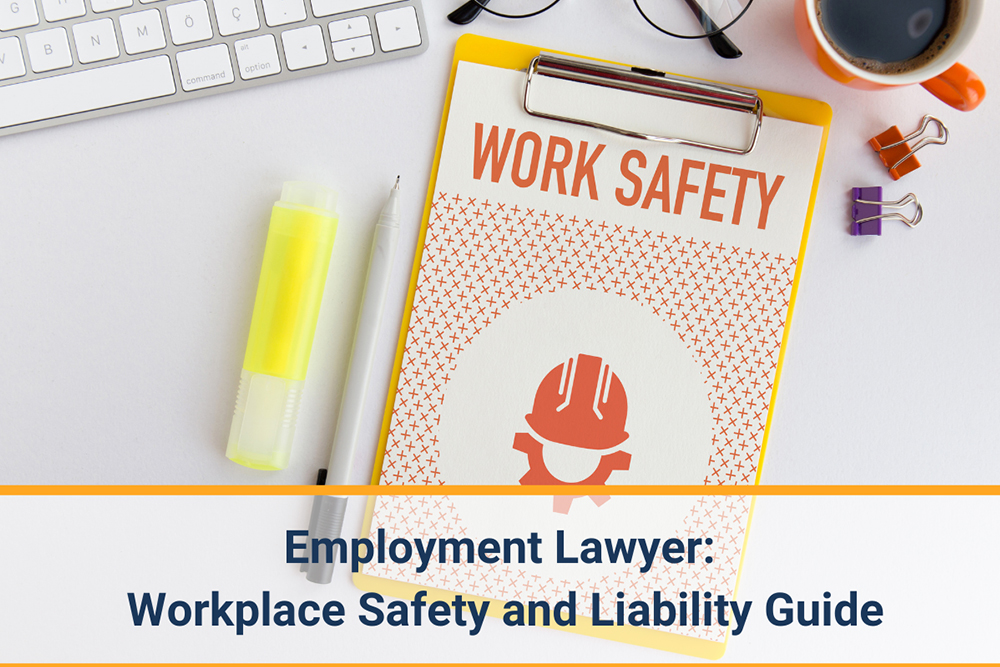
November 20, 2025 | Leslie Smith
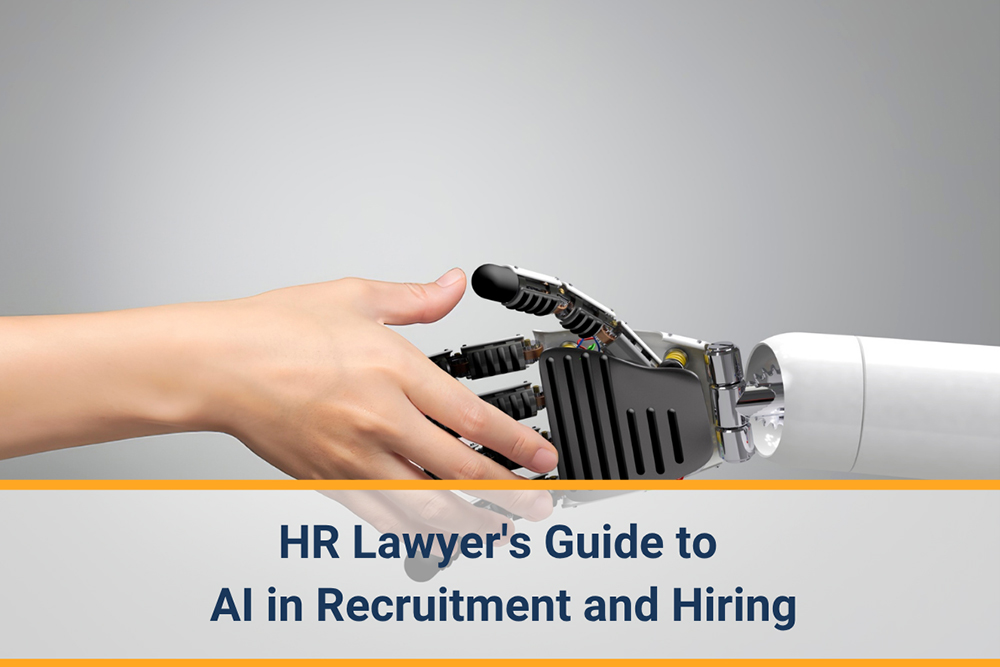
October 19, 2025 | Leslie Smith

September 19, 2025 | Leslie Smith
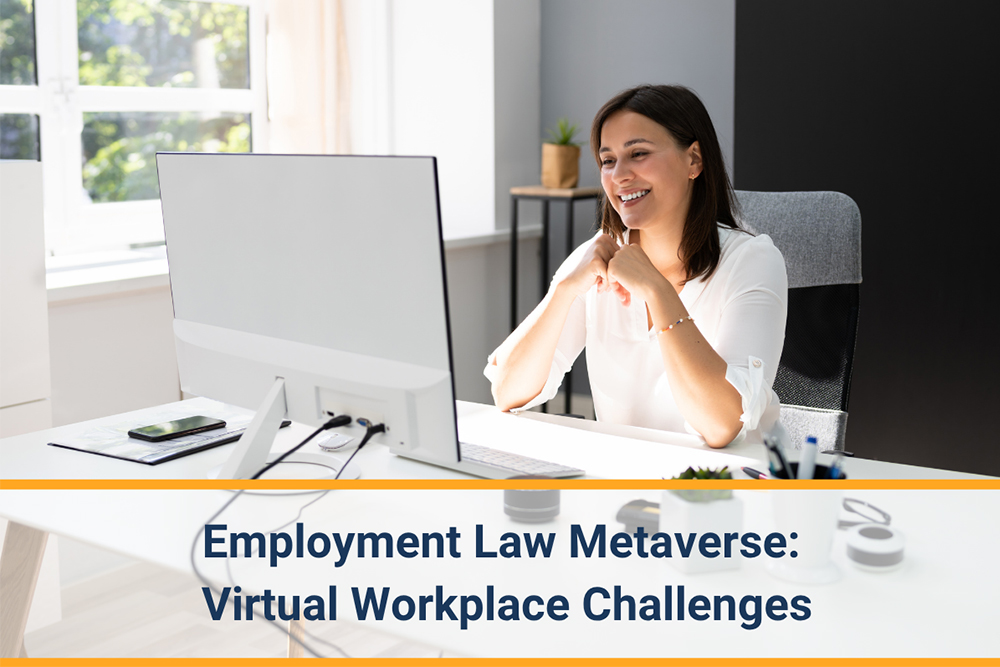
August 6, 2025 | Leslie Smith

July 17, 2025 | Leslie Smith
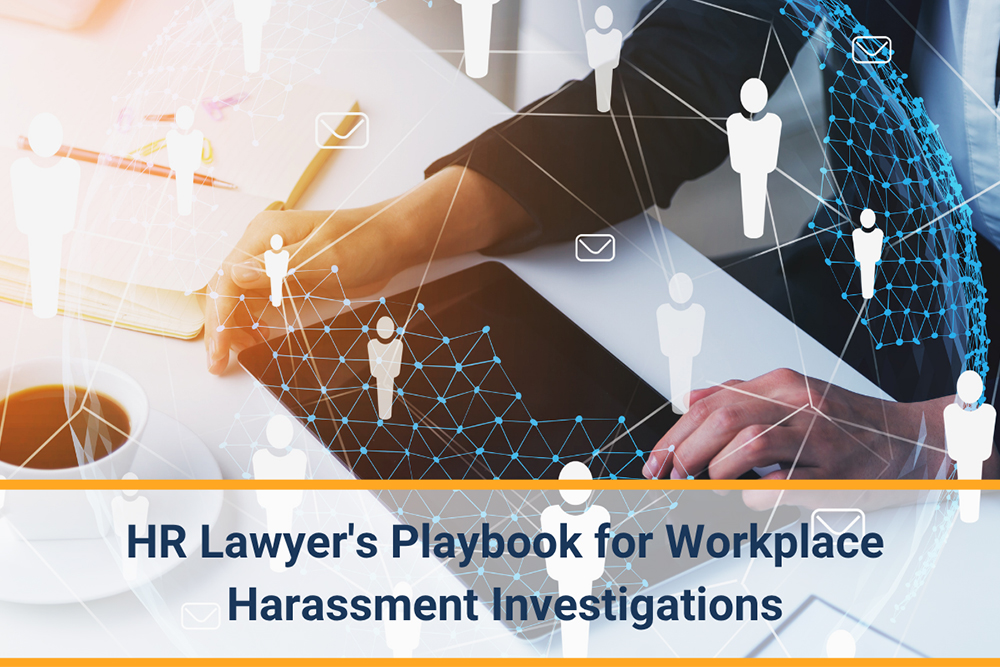
June 12, 2025 | Leslie Smith

May 11, 2025 | Leslie Smith

April 8, 2025 | Leslie Smith

March 8, 2025 | Leslie Smith

February 5, 2025 | Leslie Smith

January 25, 2025 | Leslie Smith

January 11, 2025 | Leslie Smith

December 10, 2024 | Leslie Smith

December 5, 2024 | Leslie Smith

November 9, 2024 | Leslie Smith

October 18, 2024 | Leslie Smith

July 14, 2022 | Leslie Smith

April 22, 2022 | Leslie Smith








